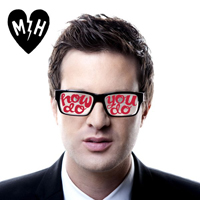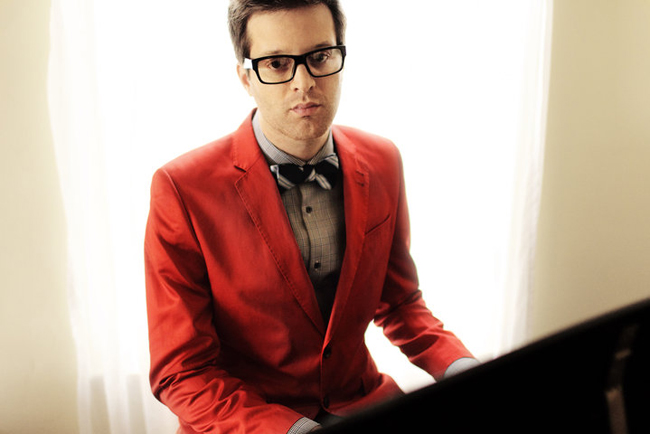On a biweekly basis, The Groove Seeker goes in search of killer grooves across rock, funk, hip hop, soul, electronic music, jazz, fusion, and more.
 Mayer Hawthorne: How Do You Do? (Universal Republic, 10/11/11)
Mayer Hawthorne: How Do You Do? (Universal Republic, 10/11/11)
Mayer Hawthorne: “A Long Time”
[audio:https://alarm-magazine.com/wp-content/uploads/2011/10/02-A-Long-Time-mastered.mp3|titles=Mayer Hawthorne: “A Long Time”]As the soul revival sound goes, Mayer Hawthorne is in a league of singers who strike the proper balance between old school and new school. Yes, the singer’s act takes greatest influence from the early Northern soul era, but there’s more to Hawthorne’s music than a game of name-that-classic-45.
In exception to the Impressions EP and the New Holidays cover on his 2009 debut, A Strange Arrangement, Hawthorne’s music is wholly original. He shows his appreciation for the throwback song-craft by mirroring its fundamentals: carefully placed horn sections, sweet harmonies, tight group-vocal backing melodies, and exceptionally smooth and polished arrangements.
For his sophomore effort, Hawthorne reaches deeper into the late-’60s, early-’70s reference bag to make a no-frills record packed with tolerantly addictive soul hooks. How Do You Do? covers a lot of ground and shows some new sides to Hawthorne’s musical palette with cleaner and more robust production and instrument arrangements. Whether or not his jump to Universal Republic from Stones Throw has anything to do with it is arguable, but Hawthorne finds a way to use time-honored soul maxims to forge an individual sound.
Much of Hawthorne’s success should be given to his vocal calling card, a playful Stylistics-esque falsetto that can turn into an easygoing tenor when needed. Like many kids who grew up in and around Detroit, Hawthorne spent time growing up listening to soul and it shows. Lead-off single “A Long Time,” with its deep soul strut, stands as an ode to the current state of affairs in the Motor City. Rolling out a narrative that follows the rise of Henry Ford and Berry Gordy, Hawthorne evokes the glory days when horse power and soul ruled Detroit. It’s an inspiring number, once listeners get to the heart of it, played to a catchy dance groove that channels the funk R&B of Steely Dan and Hall and Oates.
Heavy kick and rhythm snaps help to set Hawthorne apart from his contemporaries, giving his doo-wops a modern break beat feel. Before he was making soul music, Hawthorne was DJing and producing in Detroit’s hip-hop scene as DJ Haircut, and he brings the same compact beat-sequencing feel to his music. This is apparent from the get-go with album opener “Get To Know You,” a delicate blend of contemporary R&B rhythms with the frank sensuousness of a Love Unlimited Orchestra track, from its deep, slow-jam bass groove to Hawthorne’s Isaac Hayes-style spoken-word intro.
He can run a gamut of soul expressions through a variety of tempos and emotions, locking into a snappy Motown groove on “You Called Me,” showing off his neo-soul side on “Can’t Stop,” and nailing a beautiful tension in the elegant soul ballad “You’re Not Ready.” Keeping the record’s production warm and dry, yet less reverb-drenched than his debut, it seems that Hawthorne has a better understanding of the variety of sounds being channeled.
His lyrics, too, are stronger and more vindictive than ever. It’s refreshing to hear a blunt love-jaded song like “The Walk,” delivered in a prim gentleman’s kind of soul. It’s wry to say the least, and you can hear Hawthorne testing the expectations that now come with the all-too-familiar soul-revival niche. Over 12 tracks, How Do You Do? clicks together in all the right places, as a collection of songs that showcase Hawthorne’s witticisms and refined raw edge, and as a follow-up that builds on an already impressive pop-soul approach.

